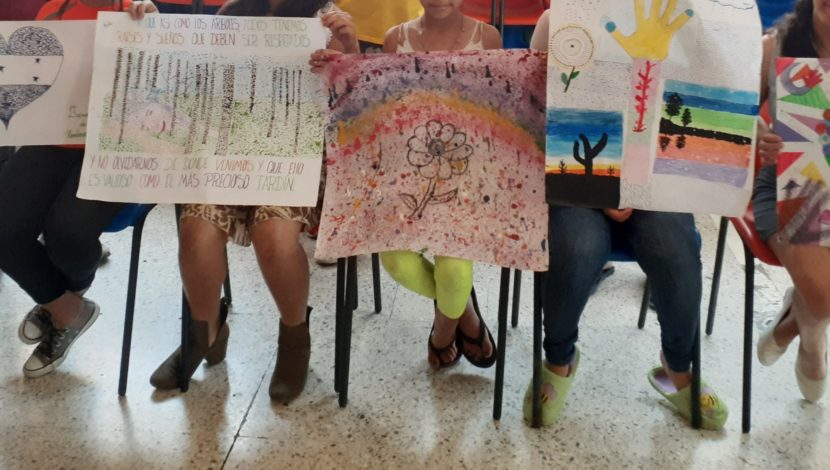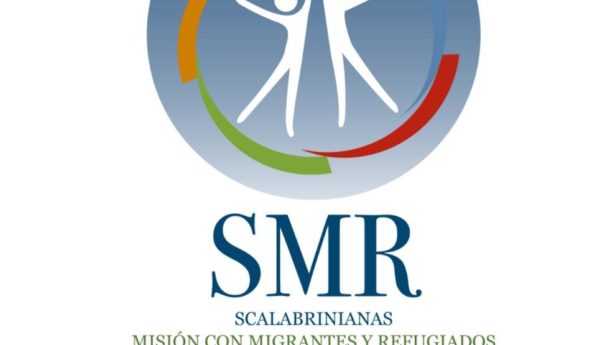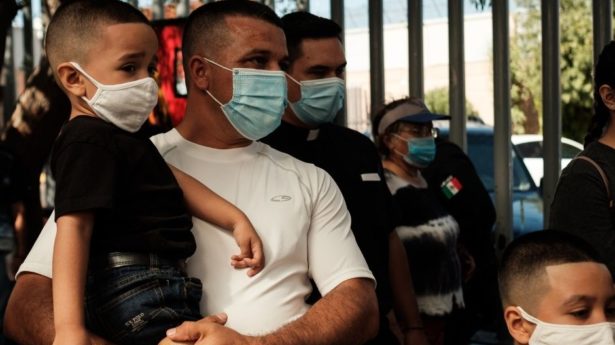The Unitarian Universalist Service Committee advances human rights through grassroots collaborations.
Solidarity in the Times of COVID: Scalabrinianas Misión con Migrantes y Refugiados (Part 2)

By on March 5, 2021
How would you describe the quality of public health services (physical and psychological) in these months and the ability to access these services? In the event that they are insufficient or inaccessible, how have you been able to respond to the health needs of residents and staff?
There is a very large gap in the public health sector’s response at all levels, even now, and also with respect to COVID-19 cases.
Institutionally, we have been able to attend to physical and mental health needs through volunteer professionals (doctors, psychologists and psychiatrists), and costs for exams and medicines were covered with emergency funds sent by different funders.
What are the changes or adaptations that SMR has made in its activities and processes? Have you made any more permanent changes or adaptations in the physical space of the house? Do you think that these changes will become permanent in some way?
We have not changed Casa Mambré’s physical space, but we did set aside some rooms for the quarantine period that all new arrivals must observe.
Everyone who arrives has their temperature taken, passes through a shoe disinfecting station, and uses alcohol gel on their hands.
Dishes for meals are now kept separate, each person using only those assigned to them, which they are responsible for washing, drying, and storing in a plastic bag.
All products delivered by providers or that come from donations are sanitized.
Everyone from outside the institution that comes to receive or provide services must wear a face mask at all times.
Certainly, many of these sanitary measures will remain permanently in the institution’s comprehensive security protocols.
From what you know of other shelters, houses, and organizations that support people in migration, are they in similar circumstances? For organizations that support people in migration, do you think that this will significantly change how they operate? Or do you think that at some point in the future they can return to what might be called “normal”?
At SMR, we accompany 14 houses and kitchens that provide assistance to people who are migrating, and we are certain that after the pandemic, their assistance protocols will never be the same. We are all realizing that before we didn’t pay much attention to fundamental sanitary measures, not only for the prevention of COVID-19, but also many other contagious diseases.
We must create networks and look for healthcare alternatives, since the public system does not have the necessary resources and is not set up to provide care to migrants and refugees.
Now that we are coming up on one year of the pandemic, of lockdown and crisis, how are people in the house doing? Both staff and residents. How are they feeling? How have they been able to adapt (or not) over the course of this last year?
Even if Mexico City’s color-coded “stoplight” public health warning system changes from red, where it is now, to green or orange, we will continue without the support of volunteers and the technical staff will continue working part time from home.
Casa Mambré residents are still experiencing the impact of not being able to leave the shelter for work, go for a walk, or to live normally, which can result in even greater prolonged stress.
As is true for everyone, it is very difficult to plan, organize and make projections in this unstable context. We had thought that 2021 would start off with fewer restrictions but we are now once again under the highest level of restriction. Because of the large number of new infections and deaths, we don’t know how long this will go on.
Rather than saying that we have adapted, we have simply accepted that, until the emergency is over, there are many things that will not return to normal and that there are many things that will have to be done differently.
In the third and final chapter of the series, SMR staff discuss future challenges and their reflections on how the pandemic has changed the lives of people who are migrating.
***
About UUSC: Guided by the belief that all people have inherent worth and dignity, UUSC advances human rights globally by partnering with affected communities who are confronting injustice, mobilizing to challenge oppressive systems, and inspiring and sustaining spiritually grounded activism for justice. We invite you to join us in this journey toward realizing a better future!
Image Credit: Scalabrinianas Misión con Migrantes y Refugiados

